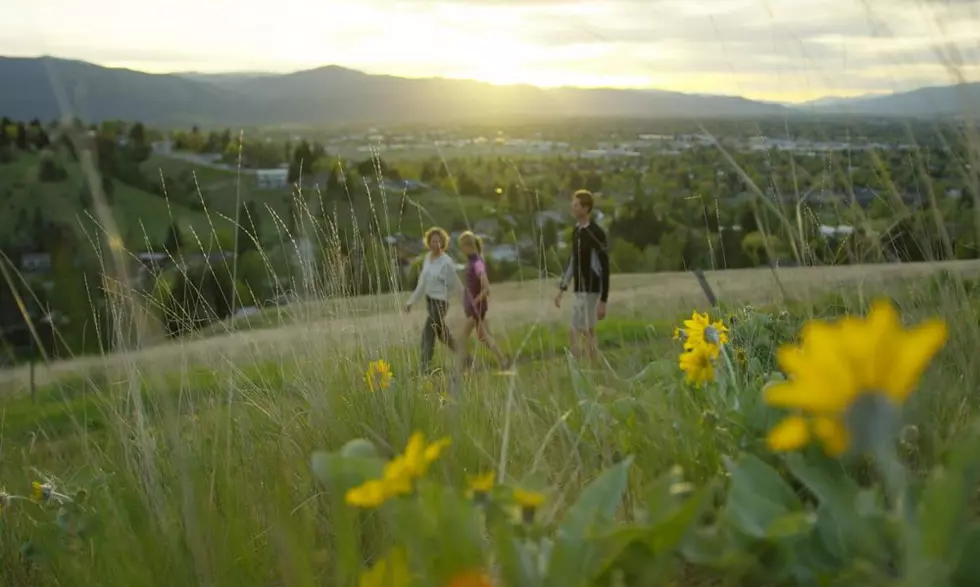
Poll: Conservation, public lands are still priorities for most Western voters
Another poll of Western voters shows that political candidates who emphasize conservation and public lands should do better than those who don’t, all other things being equal.
For the past for years, the Colorado-based advocacy group Center for Western Priorities has sponsored a “Winning the West” poll of likely voters – those who are not only registered but who are likely to vote – in key Western states to determine the importance of conservation and public lands in election decisions.
This year, as in the past four years, a majority of Westerners continued to stress how much they value the outdoors and public lands, even when a pandemic takes center stage in their lives. Or sometimes, because it did.
The strong support for public lands indicated the polls is something candidates should take to heart, said Jennifer Rokala, Center for Western Priorities executive director.
“(Four years ago), public lands issues weren’t always included in candidates’ stump speeches,” Rokala said. “Over the last four years, we’ve seen public lands and conservation go from niche issues for a few candidates to top-tier issues for any candidate running for office in the West.”
This year, polling professionals from Gottlieb Strategic Research used online surveys to target between 400 and 600 voters in each of five western states: Montana, Colorado, Nevada, New Mexico and Arizona between June 2 and June 17. The online platform was especially important this year with COVID-19 requiring social distancing, said pollster Brian Gottlieb. The margin of error in the results is plus or minus 2%.
As usual, Montana voters usually led the other states by at least a few percentage points in favoring public land issues.
When asked if public lands, parks and wildlife factor in deciding whom to vote for, 81% of those polled said they do, but in Montana, that jumped to 88% with 58% saying those issues were very important.
Presented a choice between a candidate with a balanced approach, allowing some energy development on public land but making conservation the top priority, and a candidate who supports deregulation that favors natural resource development and local control of public land, 55% supported the former. The pro-conservation beat out the deregulation candidate by a slim margin even among Republican voters.
When presented with seven public land proposals, at least 64% of voters supported all of them. Two of the proposals were part of the Great American Outdoors Act recently passed in the U.S. Senate: increase funding for maintenance on public lands and fully fund the Land and Water Conservation fund. Both of those proposals received about 75% voter support.
Two-thirds of voters supported putting no-drilling buffer zones around parks and other public land that is sacred to tribes. The specific case the poll dealt with was Chaco Culture National Historic Park in New Mexico, but a similar situation exists in the Badger-Two Medicine region near the Blackfeet Reservation in Montana.
This year, the Center for Western Priorities added COVID-19 related questions.
One-third of voters in every state said that COVID-19 have made public land issues more important, while two-thirds said public lands were just as important before as after the COVID-19 outbreak.
Almost 60% of voters said they supported taking a cautious approach to opening national parks while the pandemic is still in play while almost 30% said they wanted parks to open immediately. More than two-thirds agreed that face coverings should be required to enter crowded areas in parks or at trailheads, although only 40% strongly agreed.
The U.S. Congress made more than $7 trillion available to head off an economic downturn brought on by the COVID-19 shutdown. About 55% opposed giving stimulus money to coal, mining and oil and gas companies, although Republicans were evenly split between supporting and opposing economic relief for such companies. But significant majorities in all parties supported giving stimulus money to small businesses, tourism and outdoor recreation companies and especially farmers.
Recently, the Trump administration has used the pandemic as a reason to loosen environmental regulations, saying it would give industry a boost to keep people employed. But 60% of voters said they were opposed to that, although 57% of Republicans said they approved. It was one of the few questions were responses from Republican voters ran counter to the overall trend.
Similarly, about 60% of voters also said environmental protections protecting air and water quality matter now more than ever, while 18% said regulations should be relaxed.
“Months of distance and isolation only deepened the shared connection Westerners have for public lands and the outdoors,” Rokala said. “As the 2020 election nears, it will be worth watching to see if the outdoor voting bloc—the growing group of voters who base their candidate preferences on outdoor issues—will play an even more decisive role in the outcome of close races in Montana and other competitive Western states than in past election cycles.”
Contact reporter Laura Lundquist at lundquist@missoulacurrent.com.
